Retirement options
One of the big differences when you move to Spain are the options available to you for retirement planning. In the UK/Ireland we have ISAs and private/employer pension schemes which both offer good tax savings.
By Chris Burke
This article is published on: 8th February 2023

One of the big differences when you move to Spain are the options available to you for retirement planning. In the UK/Ireland we have ISAs and private/employer pension schemes which both offer good tax savings.
ISAs are not tax free in Spain, and the annual ‘private pension allowance’ is only €1,500 per year per person! In some employer contribution schemes you can save up to €10,000 per year, but these are very uncommon. Compare that to £40,000 per year in the UK, or in Ireland up to €115,000 per person, per year! €1,500 per year is never going to achieve any serious amount of income for retirement.
The main reason for this is that in Spain, culturally people preferred to set up a company structure or accrue properties, passing these from generation to generation. Additionally, there is a lack of incentives from the authorities to entice people to save into retirement schemes.
Pensions have been popular for retirement in the UK/Ireland because of the tax savings and potential employer contributions. Take both of those away and they are not nearly as effective, which is what happens when you move to Spain. So, what can you do if you want to plan for retirement in a tax efficient manner?

For me, retirement is not just about a pension, it’s about a retirement plan. We help clients build that retirement strategy, taking into consideration the amount of income they want, making sure their assets are highly tax efficient (such as moving them away from future income tax positions) and then making sure everything is flexible and portable, because you never know what will happen in life. This is all done by using our client planning portal, where we work together to bring this to life using the following process:
This is all done by planning, where we work together to bring this to life using the following process:
We never know exactly what’s going to happen, but one thing is for sure, with proper informed planning and regular analysis, you will be much better prepared.
By John Hayward
This article is published on: 21st November 2022

How many years must one work in Spain to claim a Spanish State Pension?
When Brexit finally happened, one of the concerns that I had was regarding the bilateral agreement between the UK and Spain. I wanted clarification on whether years worked in the UK would continue to count towards the years required to qualify for the Spanish State Pension. The minimum number of years in the UK is 10 years but in Spain it is 15 years. Under the Trade and Cooperation Agreement made between the EU and the UK on 24th December 2020, and specifically the Article SSC.7: Aggregation of periods, it states that the periods of employment must be considered “as though they were periods completed under the legislation which it applies”.
How does this work in practice?
If someone has worked for 9 years in the UK and 14 years in Spain then, under the individual countries’ rules, neither minimum has been achieved. However, both countries’ rules are satisfied when adding the 9 to the 14 and vice versa. That is not to say that one would receive 23 years’ pension from either or both countries but merely that the person qualifies for a pension in both countries; 9 years’ pension in the UK and 14 in Spain. Details of how the pension is calculated can be found in my colleague Chris Burke’s article Claiming your UK State Pension whilst living in Spain/EEA.

Can you continue working in Spain whilst claiming a Spanish State Pension?
In the UK, you can receive your State Pension and continue to work. You will then only pay Class 4 National Insurance contributions, those associated with profit, as no further pension benefit will be accumulated. In Spain, you cannot claim your full State Pension entitlement if you continue working, and you do not employ anyone. However, it is possible to continue working beyond Spanish State Pension age and claim a reduced pension subject to certain conditions, one of these being that you must have achieved the minimum number of years to claim 100% of the Spanish State pension. This is currently 35 years but will be increasing over the next few years. You can once again apply the principle as discussed above in terms of adding the years in the UK to achieve this minimum.
To find out what your options are and how we can help you with your retirement planning, please contact me at john.hayward@spectrum-ifa.com or call/WhatsApp me on (0034) 618 204 731.
By Jeremy Ferguson
This article is published on: 21st November 2022
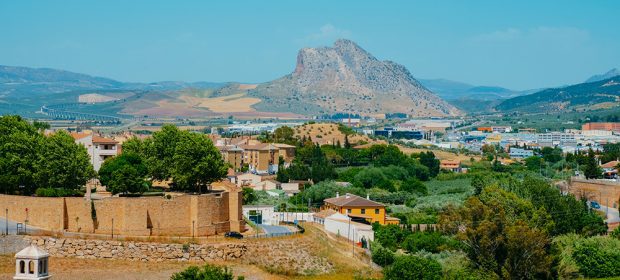
Over the years I’ve been living and working in Spain with retired expats, one of the issues that very often comes to light is finding things to do, and making new friends. For the avid golfers among you, that may not be a problem, but for many others it can be.
We have recently started supporting the Benahavis Arts Society, who not only organise Talks in Benahavis once a month, but interestingly, they are also organising regular trips to places of interest in and around Andalucia, as well as other planned social events.
If you are looking to make new friends, and explore Andalucia, then this may be for you. There are planned trips to The Malaga Christmas Lights on the 9th of December, a Christmas Lunch of the 15th of December, and a pub quiz on the 19th of January next year. Non-members are welcome, and more details can be found on their website at; www.theartssocietybenahavis.com
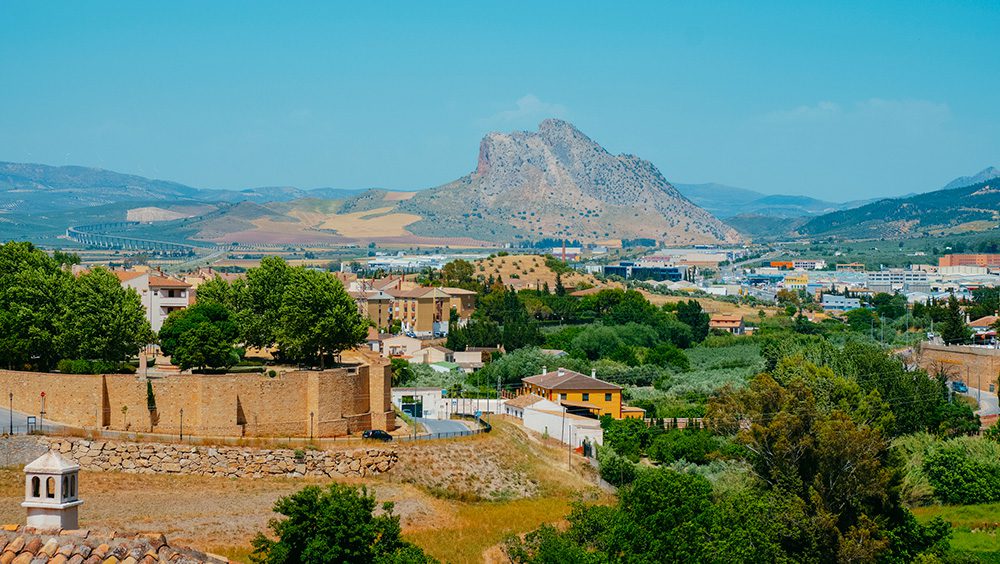
As can be seen from the write up below, the most recent trip to Antequera was a huge success:
“With the guidance of Miranda, our excellent tour operator, we started our day driving through stunning scenery including the extensive rich farmlands in the valleys around the city and the imposing Pena de Los Enamorados (Lovers Leap); a distinctive face-shaped mountain from a romantic legend that overlooks the town and dominates the landscape.
On arrival at the top of the city, we started our historical walking tour with a local guide. This included the majestic Alcazaba; the centuries old Moorish fortress and the beautiful Colegiata with its superb façade. We visited the municipal museum with its many artefacts tracing Antequera’s extensive archaeological history and the splendid renaissance style church of Parroquia San Sebastian.
We then had free time to explore the city further and take in a delicious lunch at one of the delightful tapas restaurants around the central square.
The spectacular cultural heritage site of the Dolmens was the destination for our afternoon visit. These bronze age burial grounds built with huge megaliths are nothing short of impressive. Inside, the chambers are magnificent and clearly show the scale of the architectural and engineering feat required to build them.
The whole day was truly delightful with something for everyone. It was very well planned and organised, with highly knowledgeable and personable guides, various pick-up locations and brief stops on the way there and back for refreshments. I would particularly like to thank Miranda, Betty and Tracey for looking after us so well but also the whole group who were so incredibly welcoming.”
Working with clients in the Costa Del Sol and helping with their financial planning and tax matters has meant I get involved in so many other areas of people’s lives, this being just one great example.
If you would like to find out more about how we can help you not only make sure your financial world is in order here, but also integrate into life here in Spain, please feel free to get in touch for a chat.
By Chris Burke
This article is published on: 21st September 2022

I hope you are well and had an enjoyable summer. This month we cover the following topics (if there is anything you would like to understand more or wish to see covered in these Newsletters, don’t hesitate to ask):
Early Retirement Pensions in Spain
Did you know that in Spain, under certain circumstances, you can take early retirement before the legal retirement age? But what are these circumstances and what requirements must you meet?
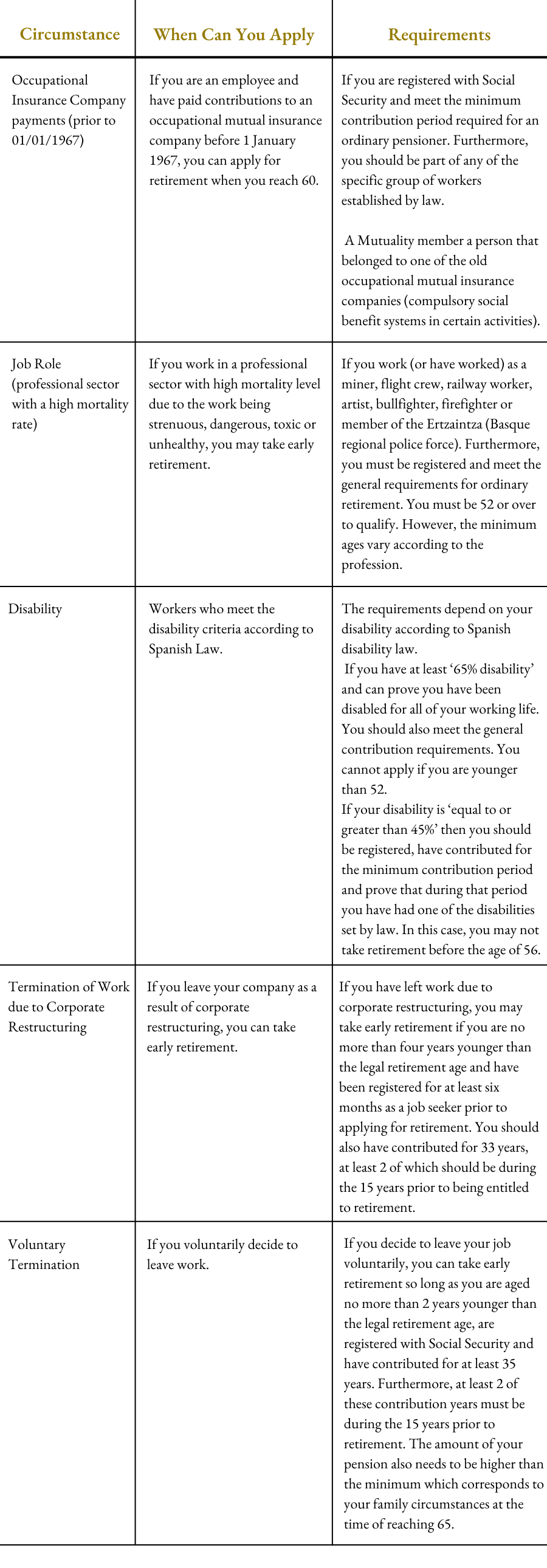
What are you entitled to and how can you apply for it?
This can be quite complicated depending on your situation, and we would recommend taking professional advice so that you can be sure of exactly what you are entitled to.

New Cryptocurrency Regulations in Spain
From 2023 onwards, Spanish residents will have to declare cryptocurrency holdings in their tax returns. Currently, cryptocurrency holders are only obliged to declare any profits or losses in their income tax returns. The 2022 tax return has a special section for these assets. However, from 1st January 2023, a new regulation will be implemented meaning that all Cryptocurrency transactions must be declared. This has been regulated by Spain’s new anti-fraud law, which is currently at the public hearing stage. It has been set out in a draft bill incorporating several anti-fraud amendments.
The new tax declaration will have to be submitted using the form Modelo 721. Information will have to be included on those who have held cryptocurrency or have been authorised beneficiaries of cryptocurrency at some point during the year (from 2023 onwards). Furthermore, cryptocurrency holders will have to include information on what their final balances are at the end of the year, as well as information on the types of cryptocurrency and the amount of units that they hold, along with the equivalent amount in Euros. This new regulation further reinforces the need to seek professional tax advice if you are a cryptocurrency holder or thinking of becoming one.
If you would like any more information regarding any of the above, or to talk through your situation initially and receive expert, factual based advice, don’t hesitate to get in touch. You can book an initial consultation via my calendar link below or email/send me a message.
By Jeremy Ferguson
This article is published on: 23rd June 2022

“Its so nice holidaying here, I’d love to live here all year round…’’
If you are a UK resident and here on holiday, it is very often these times that get people thinking about retiring to Spain. The attractions of the slower pace of life, a completely different climate, all those extra hours of daylight and sunshine, a lower cost of living, ( depending on lifestyle!), eating out often – on and on the list normally goes.
When the UK was part of the European Union, taking the plunge and moving to Spain was relatively straightforward, aside from the obvious challenges of the actual move. You could sell up, jump on a plane and then when you were here, apply for residency, register at the town hall etc, and that was pretty much it.
Now however, that simply isn’t the case. There is the fact that as a UK citizen, you no longer have the freedom of movement within the EU, something many people still haven’t come to terms with. You can of course still come here to live, but you will need to make an application for a Visa. If you are looking to retire, then this needs to be a non lucrative Visa.
I work closely with experts who can assist with these applications, who know the process inside out and make this part all very straightforward for you.
The financial planning side of the whole process is also essential, and that of course is where I get involved. It is important you dispose of or organize your assets in the most tax efficient way you can before you leave the UK. For example, making sure your pensions are correctly dealt with and selling your main residence at the right time to name just a couple, and of course understanding the tax system and rates applicable once you are here.
One of the most important aspects of making your Visa application, (which has to be done at one of three Spanish embassies in the UK – London, Manchester or Edinburgh), is understanding what your finances need to look like to satisfy the Spanish requirements. These are mostly focused on the fact that they want to ensure you have enough money or income to live here self sufficiently.
So you need to satisfy what is known as IPREM, literally translated this means “The Public Multiple Effects Income Indicator”. As a non EU member applicant ( Third country National ), you need to demonstrate you have 4 times the IPREM requirement, plus 100% extra per beneficiary. So in simple terms, if a married couple are retiring here you will need to prove income of €2,895.10 per month, or a lump sum of €34,741.20 for each year. It is also worth noting, your Non Lucrative Visa needs renewing after a year (for the next two years) and again after three years, again for the next two years. After the end of year five you will then obtain permanent residency. This all has an effect on what money they will want to see you have, be it in the form of Pension income, savings, cash in the bank etc. This not only applies when you make your initial application, but also for the following four years.
So if you are thinking about moving to Spain? You will need to make an application for a Visa. If you are looking to retire, then this needs to be a non lucrative Visa, it is really important to have a good handle on the financial requirements, not just for the initial application but also for the subsequent few years. Most of my work has changed significantly now when working with people who are planning their move here, as it is so much more complicated than it used to be.
As we are dealing with similar situations on a regular basis, it enables us to make the process as easy as it can possibly be for individuals.
If you would like to find out more about what planning would be needed to make living in Spain a reality, then please feel free to get in touch.
By John Hayward
This article is published on: 1st June 2022

Further to the recent article written by my colleague Charles Hutchinson regarding temporary annuities and their taxation of annuities in Spain, I am expanding on the tax treatment of personal pensions generally.
Depending on the type of retirement income that you are receiving, it will either be taxed as regular income, “work” income as the Spanish call it, or savings (passive) income with a different set of tax rates being applying to each type. It is generally understood that the income from pension plans that received tax relief (effectively where the contributions were deducted from income before tax was calculated) will be treated as work income.

The word “annuity” is used in a general sense in the UK as the regular payment which comes from a pension scheme. It is possible to convert a personal pension fund to an annuity, with a view to guaranteeing a fixed income for life albeit waiving the right to the capital value of the pension pot. Whether or not it is advisable to purchase an annuity is another matter. This will depend on personal circumstances.
As far as Spain is concerned, an annuity is a form of income that attracts favourable tax treatment. An annuity in Spain is either temporary or for the whole of life. The annuity is purchased. It is not income drawn from an existing pension fund unless that fund is encashed to buy the annuity. At that point though there is the possibility of a large tax bill on the encashment.
The key points here are that:
Contact me today for more information on how we can help you to protect your assets from unnecessary taxation and make more from your money, protecting your income streams against inflation and low interest rates, to talk about Spanish Tax on Personal Pensions or for any other financial and tax planning information contact me at:
john.hayward@spectrum-ifa.com or call (+34) 618 204 731 (WhatsApp).
By Chris Burke
This article is published on: 1st September 2021
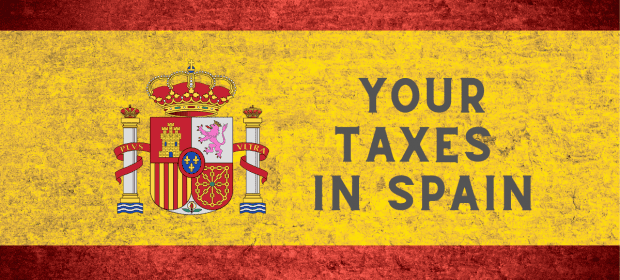
Hi everyone, I hope you are enjoying some well needed freedom and a good summer. This month’s TT covers the following Hot Topics:
UK passports
The first news out this year, importantly for those travelling to and from Europe, was that you must have 6 months left on your UK passport to enter the country now that the UK has left the EU; this applies even if you are a resident. Those travelling may have noticed that as well as joining the ‘Non-EU passport queue’, your passport will more than likely have been stamped. The UK has issued a statement saying that if you present your TIE resident card at passport control, they will not need to stamp your passport. In my experience this is not the case so far, even though I have given them my TIE as well. This might be an issue for those people who travel regularly, as once your passport stamp pages are full a passport is not usable. You would then need to apply for a new passport on the basis of ‘exhaustion of pages’. What’s more is that some countries will not allow entry without two blank passport stamp pages. If you are renewing your passport, it might be worth requesting the larger version with more pages to cover for this eventuality. Which leads me nicely onto my next topic.
UK red passport expiry date
Those who have not renewed their UK passport in the last year probably will have the old red colour passport. An important announcement was made recently in respect of these and is as such: these passports are ONLY valid for 10 years exactly. What this means is, if when you last renewed your passport and had months added that were still valid from the previous passport, these do not count anymore. Thus, these passports are only valid from 10 years from their date of ISSUE.
This will not affect everyone, but for example, if your current red passport was issued in January 2012, but expires in May 2022, because there were 4 months remaining on the previous passport which were added to the new one, you will be affected. In this instance, Europe/Spain will have this passport expiring in January 2022 and to enter you must have 6 months remaining to this date.
It’s good to have things like this to worry about, because there just isn’t enough in life is there?!
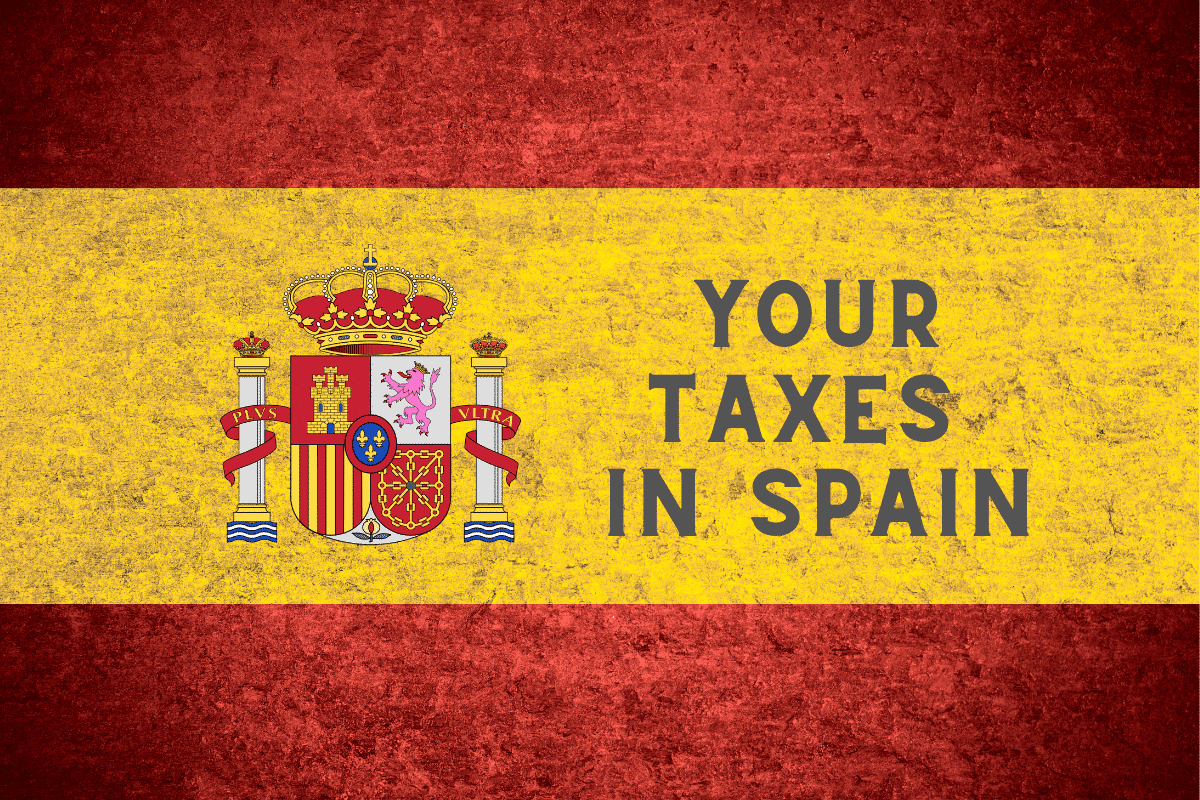
UK tax rebate for those moving abroad
Anyone who has left the UK in the last four tax years is allowed to apply for a UK tax rebate. There is no way to trigger an automatic tax refund; the HMRC needs you to submit an official claim before they can refund your tax overspend.
UK tax is calculated on your projected annual income, so if you don’t complete a full UK tax year this could be wrong, and in many cases very much so.
The main reasons you should look at this are:
The process to find out if you are due any monies is fairly straightforward:
Complete form P85, sending parts 2 & 3 of your P45 that you should have received from your employer, or a self assesment form if you were self employed.
You can read about how to do this on the official government website here:
www.gov.uk/tax-right-retire-abroad-return-to-uk
New part time working/retirement rules in Spain
Until recently in Spain, you either had to be working or retired from a Spanish state pension perspective. That is to say, you could not work and receive your state pension. I know, I know, it just doesn’t incentivise people who arguably have the most experience in life to contribute to the economy, as if they continue working in any capacity they cannot receive their hard worked for state pension. However, recently this has changed.
You can now receive 50% of your Spanish state pension, pay a reduced autonomo payment (self-employed monthly payment) and continue to work. As a reminder, to receive a Spanish state pension you must have contributed for 15 years and two of those years must have been within the 15 years preceding actually retiring.
If you would like more information regarding any of the above, or to talk through your situation initially and receive expert, factual advice, don’t hesitate to get in touch with Chris.
Click here to read reviews on Chris and his advice
By Chris Burke
This article is published on: 1st January 2021

Approximately 45% of people living in Spain contribute to a private pension. For someone who is from another Western, perhaps non-Latin country, this would seem remarkably low. Many years ago, in the UK pensions were almost guaranteed as part of an employer package, and a while back it became compulsory for anyone working in a company aged over 22 and earning more than £10,00 a year to contribute to one. But that figure of 45% in Spain could be about to get even lower…..why?
Spain has decided to lower the amount of private pension contributions you will receive tax relief on, from a low €8,000 per year (the UK has an amount you can contribute annually to of £40,000) to a measly €2,000 from 2021 onwards.
I have an open-minded view about pensions; I do not see them as essential, which may seem strange coming from a Financial Adviser. For me, a retirement plan does not need to include or solely be a pension, as long as there is planning in place. The only things I see as good value for the saver with a pension is that employees may contribute into this for you, and the potential tax savings received. I say potential tax savings here, because yes, you may receive tax relief when adding to these pensions, however, more often than not, unless you can mitigate your tax situation, will pay taxes when taking the money out, so more commonly they are a tax deferral system (which is still some kind of potential benefit).
So, if you take away employer contributions, for me private pensions, certainly as an international person living and working away from your country of residence, doesn’t seem all that attractive. If you ever leave that country the pension stays there, under that
country’s rules, and you cannot access this money until age 67 (in Spain) and invariably, in my opinion but seen through clients and performance charts, Spanish private pensions are generally not that good. Look at most Spanish banks’ pension funds and you will find high commissions, too much investment in the Spanish market, and not enough advice.
What should a retirement/pension plan look like? Well, it’s about having a plan/strategy, regularly reviewing and understanding it doesn’t have to be a ‘pension’. It can be property; indeed, one of the reasons private pension contributions are so low in Spain is because culturally they are property lovers, often not just one, but several. These are usually structured within a Spanish company and passed down through the generations, and can be a very attractive investment and also tax efficient. Buying property in Spain is expensive, approximately 13% in Catalunya for example, however if you rent this out as a long-term rental, up to 60% of that annual income is tax exempt.
What this doesn’t give you though is liquidity, so, if there is a property slow down, you could be stuck with that investment unless you want to take a loss on it, or you may have to leave it behind if you move on. It can also be a big hassle, with Okupas (a common problem in Spain of people unlawfully living in your property, and who are very difficult to get rid of, indeed sometimes it can take years to do so and cost a lot of money). Many people working now are almost in a ‘golden generation’ to think about their pension planning. Many of their parents have assets/properties that have grown very well, and will more often than not leave them a considerable amount of money (see my article on inheritance planning for a potential tax problems there!) They seem less worried about their retirement, than perhaps their parents were. Therefore, they don’t necessarily see the benefit of saving money into a pension when they might not need one, with the money being blocked until then and it restricting their current lifestyle.

A more popular and arguably better strategy for someone, perhaps like me for example, living away from my country of birth, is to make my money work by having it invested in a medium term strategy, say 5-10 years, but have more flexibility should I need it, say for school fees, or, in a few years time, buying a property, or anything else my plan entails (maybe even early retirement).
So, build your strategy on a mixture of property, investments and emergency funds where possible, and always review regularly to see which type of these suits you best at any given moment. Some people really don’t want the hassle of having property, so a well managed investment portfolio could be better for you.
I can help with all of this: the planning, helping set up a property investment structure, and organising savings that will be invested and work for you. Alongside this, we can set it up with access to the money should you need it, making sure you have a clear strategy and advice along your journey.
By Barry Davys
This article is published on: 14th June 2020

The point of having money is personal to you. Looking after your money should always start with your requirements. Your life has its own twists and turns. Your hopes and dreams are just that; YOUR hopes and dreams. How you feel about money is personal to you.
In this article I give you a framework for why you may want money. Once you have the framework, you can colour in the detail in a way that suits your requirements.
Knowing your answer to the question, ‘What’s the point of having money?’ is the starting point. Money, savings, investments, whichever you wish to call it, provides you with choice. The reason for having money is that it gives you one of three things; security, freedom or opportunity. Which choice you choose is up to you. The answer may be correct for you but different for your neighbour, even if you live next door in the same size house.
Security
Security means that you have enough money to be able to settle your debts, pay nursing fees if required, pay for medical treatment and perhaps be able to help the children to buy a house. People who want security often have a home free of mortgage; their little piece of heaven that they own.
To settle on having security means you need capital. Often people choose not to take risk with their money because they want to be certain it is there if they need it. A fall in the stockmarket will not damage the security blanket of money in the bank. Your savings are just one big emergency fund. In these times of extremely low interest rates there are only a few places to get a little investment return for this option.
More and more, I see that this form of planning is undermined by long life expectancy and inflation. Hoarding the capital without making it work can lead to the erosion of the buying power of these savings. Sadly, insecurity comes after years in retirement when people realise that what they thought was enough money, is not.

Freedom
Freedom is gained when your savings are invested to provide you with sufficient income to live on, whether or not you continue to work.
To achieve this position depends on what lifestyle you have. The more flamboyant the lifestyle, the harder your money will need to work.
To achieve a feeling of freedom, money is required, and it needs to work hard. You yourself should feel in a “life is good” state of mind. Your money must be making money and it must later be able to provide you with income if you want or need it. Making money means that you need to invest in shares, bonds and perhaps some property (in addition to the home where you live). If you do not have the inclination or skill to do this yourself, you should work with a professional adviser or use funds. Some investments can provide you income now and others with capital growth. The growth parts will protect against inflation and can mean you can increase your income later.
Opportunity
Do you want your life to be full of opportunities? To be a space tourist? To ride a Harley Davidson to Lapland from Denmark like Steve Forbes (Forbes magazine) did, just to see the Northern Lights? Or both? What an opportunity that would be seeing the Northern Lights from earth AND then see them from space. Or to be one of the first investors in the company that makes the software for all the driverless cars in the world? As your world is a world of opportunity there are many, many more things that you can do with your life; most people will never ever get the opportunities you do.
To build this life takes more money. You may have sold a business, for example. Or received an inheritance. And this money will have to work hard for you. You may have some core holdings to give you a diversified portfolio, but you will also have to take some risks to make your money work hard enough to provide you with a life full of opportunities. Take more risk with your investments, but be able to withstand an investment that doesn’t perform well. In addition to the investments used by someone looking for freedom, you may also invest in a new business, for example. This takes skill to analyse the potential of investments and you will benefit by taking advice from qualified and experienced people.
Whether you need help with deciding on your choice or you wish to discuss how to execute your plan, please contact me for assistance. An understanding of your concerns when discussing your aims and choices together with the expertise to execute the plan for your benefit can make for a strong and trusting professional relationship.